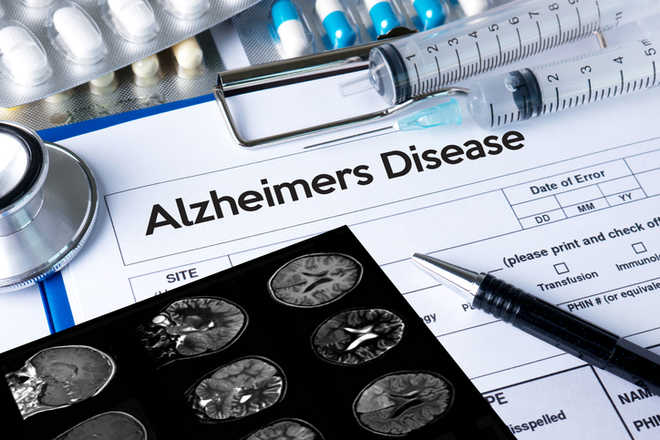
Photo for representational use only. iStock
Washington, January 29
Higher levels of a satiety hormone -- which induces the feeling of being full -- may reduce the risk of developing Alzheimer's disease, according to a study which suggests that our diet may affect memory.
Researchers from Iowa State University in the US looked at the satiety hormone, Cholecystokinin (CCK), in 287 people.
CCK is found in both the small intestines and the brain. In the small intestines, CCK allows for the absorption of fats and proteins. In the brain, CCK is located in the hippocampus, which is the memory-forming region of the brain, said Auriel Willette, assistant professor at Iowa State.
For individuals who have higher CCK levels, their chance of having mild cognitive impairment, a precursor state to Alzheimer's disease, or Alzheimer's disease decreased by 65 per cent.
"It will hopefully help to shed further light on how satiety hormones in the blood and brain affect brain function," Willette said.
Alexandra Plagman, lead author of the study published in the journal Neurobiology of Aging, said they chose to focus on CCK because it is highly expressed in memory formation.
The researchers wanted to see if there was any significance between levels of CCK and levels of memory and grey matter in the hippocampus and other important areas.
They also looked p-tau and tau proteins, which are thought to be toxic to the brain, to see how these might impact CCK and memory. They found that as tau levels increased, higher CCK was no longer related to less memory decline.
The researchers hope that the study will encourage others to look into the nutritional aspect of diets, versus just looking at caloric intake.
Plagman already is looking at how diet impacts an individual's CCK levels through researching fasting glucose and ketone bodies.
"By looking at the nutritional aspect, we can tell if a certain diet could prevent Alzheimer's disease or prevent progression of the disease," Plagman said.
"The regulation of when and how much we eat can have some association with how good our memory is. Bottom line: what we eat and what our body does with it affects our brain," Willette said. - PTI



























